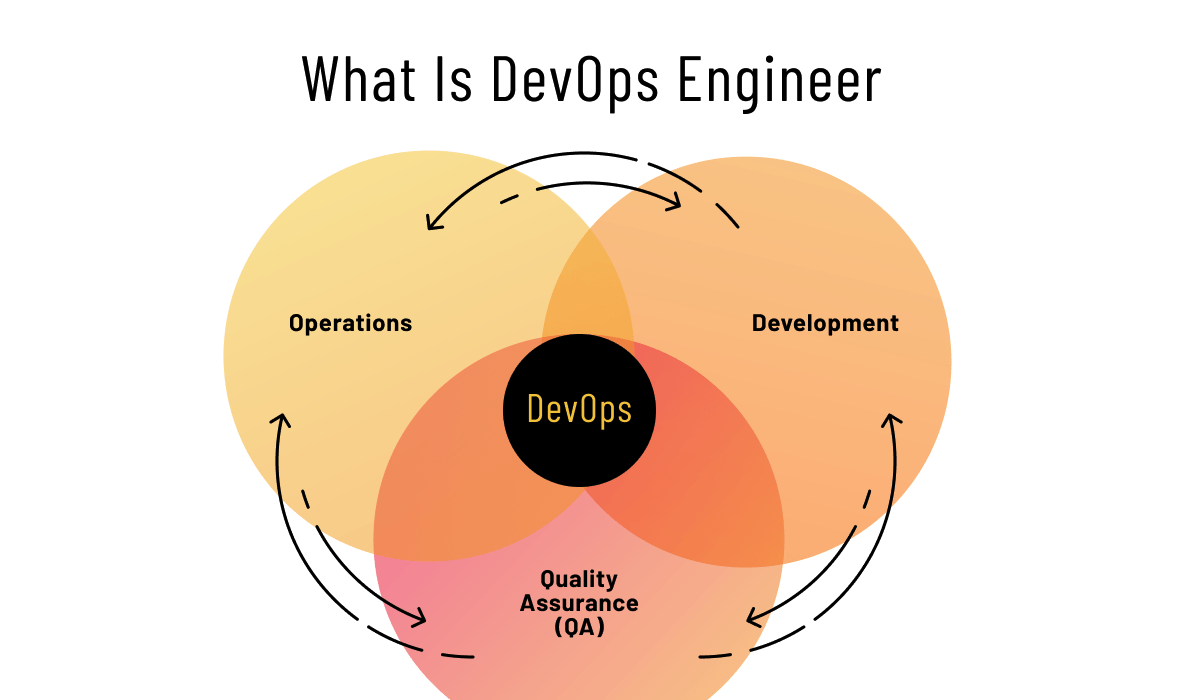What is a DevOps Engineer? Responsibilities, Principles, Tools, Lifecycle, and More
In this article, we answer the question “What is a DevOps engineer?” We also describe the responsibilities this specialist has, what the DevOps principles and tools are, and the best way to build a DevOps team for your project.
Are you looking for ways to optimize your software development process? Consider implementing DevOps engineer practices. It is one of the most advanced and efficient approaches to software creation with ultimate security and flexibility in mind.
Why DevOps is Vital for Agile Development
DevOps stands for the combination of development and operations in the process of software creation. From a technical point of view, this is a practice that allows developers and operational specialists to work together more effectively, to create a high-quality product, and reduce the time it takes to bring it to market.
A lot of experts refer to DevOps as a software development culture that is highly focused on creating a top-notch, quality product that meets the customer’s expectations.
DevOps engineering is a beneficial approach for business. Implementing DevOps practices allows one to create software pieces with fewer errors, carefully test each part created and integrate it into the existing business processes, thereby reducing cost and speeding up the final product launch.
The main DevOps principles of continuous delivery, continuous deployment and continuous development also match perfectly with the Agile development methodology, which stands for high-end quality, flexibility in the development process, and a focus on customer needs.
What is a DevOps Engineer?
So, what is a DevOps engineer? This person is an IT professional with great organizational and managerial skills, a deep understanding of a product development lifecycle and the customer’s business processes. They are responsible for ensuring effective collaboration between software developers, testers, and DevOps team members.
A DevOps engineer is responsible for application development management, continuous integration (CI), and continuous delivery (CD) by setting up the different environments for these purposes, automating recurring tasks, monitoring system performance, and ensuring security protection against any cyber threats.
DevOps Engineer Responsibilities
| Delivery management | The process of delivery management and the DevOps lifecycle has a lot of points of intersection since both of these processes take place at each of the product development stages. DevOps engineers make sure that tech team members are clear on goals, tasks, and deadlines. |
| IT infrastructure design and improvement | DevOps specialists are always reviewing the IT infrastructure design and improvements with the aim of creating more effective collaboration and reducing risks. |
| Performance testing | Since continuous delivery is one of the DevOps pillars, there is a need to test each piece of software created before its integration into the existing business processes. |
| Automation | A lot of DevOps engineer responsibilities imply repeated tasks with each of the software pieces. What do DevOps engineers do in this case? They automate them with the help of DevOps automation tools or create custom automation scripts. |
| Release cycle optimization | The continuous delivery approach requires DevOps engineers to constantly search for ways to optimize and improve release cycles, eliminate time drains and deliver better products faster. |
| Monitoring and reporting | Since continuous feedback is one of the DevOps principles, this specialist needs to control the process, report on the mistakes, and find ways to avoid them in a new cycle. |
| Security control | Most DevOps processes take place in the cloud, so there is a need for security control, which is one more task of a DevOps engineer. Despite being the last job on the list, it is one of their most important responsibilities. |




